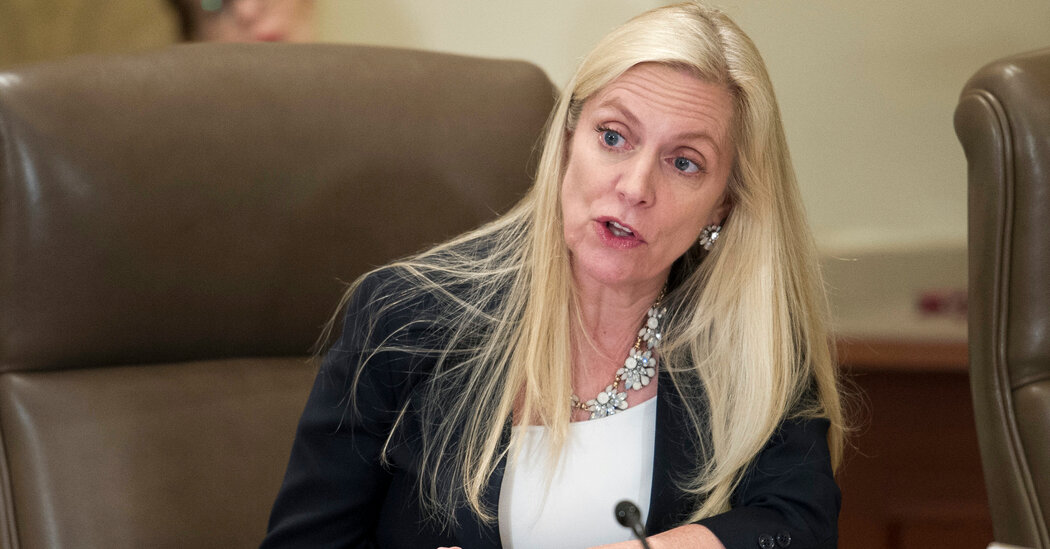Lael Brainard, a Federal Reserve governor since 2014, was in the mix to potentially replace Jerome H. Powell as Fed chair, but President Biden’s de
Lael Brainard, a Federal Reserve governor since 2014, was in the mix to potentially replace Jerome H. Powell as Fed chair, but President Biden’s decision to elevate her to the Fed’s No. 2 role will still place her in a powerful position at the central bank.
If confirmed as vice chair, Ms. Brainard would be the third woman in the Fed’s 108-year history to serve in the role after Janet L. Yellen and Alice Rivlin. Her term would begin in February 2022, after the departure of Richard Clarida, the current vice chair.
Ms. Brainard may not be a household name, but she has been a player in Washington political circles for years, including serving in a top role at the Treasury Department during the Obama administration.
Here’s a look at who Ms. Brainard is and why Mr. Biden chose her for a top spot at the Fed.
Who is Lael Brainard?
Ms. Brainard, a Democrat, started her career in policymaking in the 1990s. During the Obama administration, Ms. Brainard served as the Treasury’s under secretary for international affairs, earning a reputation as a perfectionist. At the department, she tried to put pressure on China to allow market forces to guide its currency and worked to persuade Europe to pursue a more ambitious economic rescue during its debt crisis.
Ms. Brainard also served as deputy national economic adviser to former President Bill Clinton. From 1990 to 1996, Ms. Brainard was an assistant and associate professor of applied economics at the Massachusetts Institute of Technology.
The daughter of a Foreign Service officer during the Cold War, Ms. Brainard was raised in Communist Poland and Germany before reunification. She went on to receive an economics doctorate at Harvard University.
Mr. Powell, who Mr. Biden nominated for a second term as Fed chair on Monday, has frequently praised Ms. Brainard’s intellect in private conversations and has installed her in key roles at the Fed, including tapping her to play a major part in devising and overseeing the Fed’s emergency lending programs.
In January, Ms. Brainard was viewed as a leading contender to be Mr. Biden’s Treasury secretary, a position that went to Ms. Yellen.
What does the vice chair do?
The vice chair, the No. 2 role at the Fed, holds little power officially, but the vice chair typically floats new ideas in speeches and helps advise a Fed chair’s thinking on policy issues.
Although Ms. Brainard is already part of Mr. Powell’s inner circle of advisers, her new role would make her Mr. Powell’s closest collaborator on monetary policy issues.
What are her views on monetary policy?
Both Mr. Powell and Ms. Brainard have been cautious of reacting to inflation too quickly by raising interest rates. But they have said they are carefully watching the price changes to ensure that high inflation does not become long-lasting.
She has also been supportive of the Fed’s approach to slowing its bond-buying program, which was put in place during the pandemic to help support markets and keep money flowing through the economy. Some Fed officials have pushed for a quicker “taper” given inflation, but Ms. Brainard has not suggested she wants to deviate from the course that the Fed outlined at its last policy meeting.
Will her new role change anything at the Fed?
Ms. Brainard has been outspoken on several issues, including the need for the Fed to take a more active role in climate-related issues to ensure that the financial system is prepared for potential fallout from climate change. She has also pushed back against recent moves by the Fed to loosen some post-financial crisis bank regulations, including voting against rule changes and issuing pointed dissents criticizing the Fed’s approach.
Her new role could put her in a stronger position to influence those topics.
In his statement announcing her nomination, Mr. Biden pointed to climate change and financial regulation as areas where he expected both Ms. Brainard and Mr. Powell to play a strong role, saying “they also share my deep belief that urgent action is needed to address the economic risks posed by climate change, and stay ahead of emerging risks in our financial system.”
www.nytimes.com
